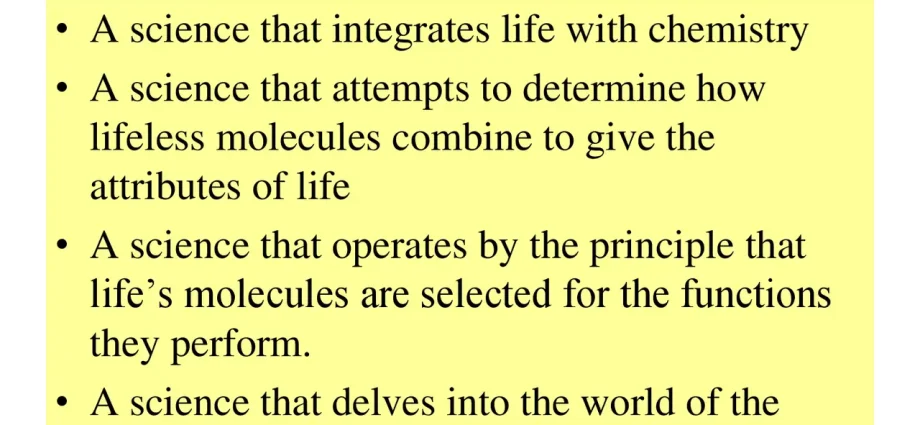Contents
What is biochemistry?
What is a biochemist?
Biochemistry, as the name implies, combines biology and chemistry. For this reason, the biochemist is the specialist in the chemical processes that govern living things. In other words, it studies and analyzes human, animal and plant cells, without forgetting their environment, to better understand them. He is interested in the microscopic world of living organisms to understand how they work. From there, he can for example set up applications in various fields, such as medicine, biotechnology or ecology.
Thus, its functions are diversified, from one specialty and from one type of job to another). These include:
- studying the chemical processes that take place in a cell (such as cell division or growth);
- it sets standards by constructing standardized methods and procedures;
- he evaluates the effects of pharmaceuticals and toxins on human, animal or plant cells;
- or it tests products or materials, and assesses their quality and reliability.
As the biochemist can also work in a research laboratory as a researcher, he can also take charge of supervising the work of students or technicians, writing scientific articles and applying for funding.
The different specialties of the biochemist
There are many branches, or sectors of activity, in which the biochemist can practice. Let us quote for example:
- Medicine;
- the agri-food, pharmaceutical or cosmetics industry;
- the environment ;
- ecology;
- agriculture;
- or even research.
Each of these areas has specific tasks. But the biochemist remains one of the laboratory specialists, who is interested in the chemical processes that orchestrate living things.
How does the biochemist work?
Whatever the sector of activity in which he operates, it is mainly in the laboratory that the biochemist operates, whether he is located in a hospital or industrial environment.
We call on the biochemist for many reasons:
- in medicine :
- to assess the general health of a person;
- to assess the functioning of an organ;
- to ensure the proper functioning of a treatment;
- to detect damage to an organ;
- or to detect chemicals released from damaged tissue;
- in the environment:
- to study the biogeochemical cycles of natural elements, such as nitrogen or carbon, but also of contaminants, such as heavy metals or pesticides;
- to understand the distribution of these compounds on the planet and thus better anticipate their effects on water, soil, fauna, flora but also public health;
- to develop analytical methods and detect these compounds in the environment;
- to monitor the bioaccumulation of these compounds in living things;
- to control the quality of manufactured or processed products;
- to verify that the products meet the standards in force.
- and industry :
The involvement of the biochemist in research
In the research environment, the biochemist works in close collaboration with researchers from other fields (such as the microbiologist, the chemist,the biologist, Etc.).
For example, once a molecule of interest is identified, then the biochemist scrutinizes its behavior, its evolution, its reactions to other molecules, organisms or situations. Thus, his work can lead him to various applications, such as:
- the establishment of food preservation methods;
- drug design;
- or the development of methods for treating polluted water or soil.
How to become a biochemist? Biochemical studies
In France, to work in the field of biochemistry, you must follow a university training, and obtain a license, a master’s or a doctorate in biochemistry (or life sciences and technologies), depending on the desired position (technician, researcher, etc.) . It is also possible to attend an engineering school.
In Quebec, you must have a bachelor’s, master’s or doctorate in biochemistry, depending on the desired position (technician, researcher, consultant, etc.).











most informative knowledge for students of pharmacist or pharmacist technician.
ببخشید من در مورد رژیم اطلاعات میخواستم اگه ممکنه بفرمائید که این رژیم چطوری چی استفاده میشه ممنون